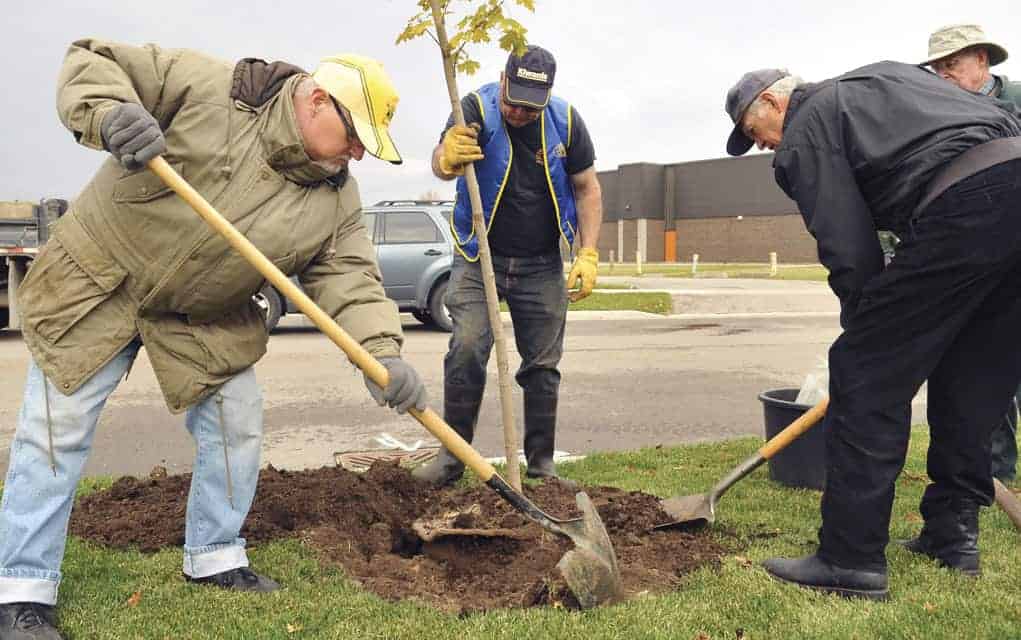Municipal politics is often thought of as a considerably quieter, more mundane, less bombastic level of government than its provincial and federal counterparts. But the renewed push from Queen’s Park to slash the size of Toronto city council in half – to 25 seats from 47 – during an ongoing election has threatened to reopen the old debates of amalgamation here in the townships.
Defending the move, Ontario Premier Doug Ford argued that reducing the number of politicians in the city would save taxpayers millions of dollars, as well as cut down on unnecessary bureaucracy. The flipside of this is that for smaller municipalities like Woolwich and Wellesley, smaller council sizes suggests less representation at the regional level of government.
Whether Waterloo Region and its councils will find itself on the cutting block is far from certain.
“It’s something certainly we’ve talked about and thought about,” said Woolwich Mayor Sandy Shantz, who sits on both the township and regional councils. “I mean, you can’t really look at what happened in Toronto and not wonder.”
In Canada, provinces have the principal authority to decide how municipal governments operate. They can decide such as the boundaries of municipalities, the number of politicians representing the locality, the size of their wards, and the powers and responsibilities they wield.
“My number-one concern in the long term would be a sort of diluted authority when it comes to some of the planning issues that we’re dealing with,” said Wellesley Mayor Joe Nowak who, like Shantz, occupies a seat at the regional council table as well as at township council.
Nowak notes that if the province turned Waterloo Region into a single-tier system of government, eliminating local councils in favour of a single, region-wide authority, Wellesley residents would have smaller say in deciding the course of their township.
“So my concern would be that we can protect the lands that we have – the agricultural lands that we have right now,” said Nowak. “I think we have to make sure that we can protect that at all costs. And if we have diluted authority, which I think we would have in a one tier system, then that would make it a little more difficult to protect what I think the people of this township appreciate most.”
To date, the provincial government has not directly indicated that they intend to place Waterloo Region or its lower municipalities on the cutting block. However, the government has said it intends to “review” Ontario’s regional governments for improvements.
“What we are going to do during this pause is take a long look at regional government across the province – where things have worked and where things haven’t – to figure out what we can do better,” said Steve Clark, Minister of Municipal Affairs and Housing, in July.
Whether that means Waterloo Region may face a similar radical transformation to that in Toronto was a possibility, but Shantz added that the term review shouldn’t necessarily set off alarm bells for local residents.
“Our two-tier system here is working reasonably well. Can it be tweaked? Oh, probably. Should it be reviewed? Probably; it’s always good to look at these things. So I don’t have a problem with a review as long as it’s done collaboratively, and not imposed,” she said.
As of September 25, the proposal to reduce Toronto city council has yet to become law, after the government’s first attempt was overturned by a Superior Court judge as being unconstitutional. The PC party responded by invoking the rarely used “notwithstanding” clause of the Constitution, allowing them to bypass the Charter of Rights and Freedoms, as well as any checks from the judiciary.
The province has proposed to increase Toronto city’s wards to match provincial and federal ridings, which each contain 100,000 people in the city. The superior court ruled that the proposal Torontonians of their right to effective political representation, pointing to a lengthy study by the city that found one councillor could not effectively represent a 100,000-constituent riding.
Woolwich, by comparison, with a population of 25,000, has six councillors, while Wellesley has five councillors representing a population of 11,000 people.
Councillors, the judge reasoned, served an important role as a type of ombudsman, by fielding the concerns and questions of their constituents and meeting with them. A single city councillor could not do that effectively do that for an entire provincial riding of 100,000 people
Attempts to contact Conservative MPP Mike Harris, who represents the local Kitchener-Conestoga riding of 114,000 constituents, were unsuccessful. Harris was reportedly working through a backlog of meetings at the legislature, and could not provide comment.
However, on Harris’ social media, the MPP republished a post approving of Doug Ford’s government for “standing up for taxpayers and more efficient local government … in a rare and historic midnight sitting.”
The premier has promised a free vote on the legislature, meaning PC MPPs will be able to vote as they wish, without the usual party discipline.









